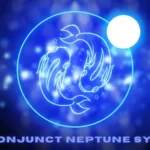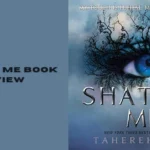Introduction to Wordle and Crossword Puzzles
Bad wordle to spoil has taken the internet by storm, captivating players with its simple yet addictive gameplay. Each day brings a new five-letter puzzle to solve, and fans eagerly anticipate their daily dose of brain exercise. But as this online sensation grows, so does another phenomenon: Wordle spoilers. Whether shared on social media or in casual conversations, these spoilers can turn a fun challenge into an annoyance faster than you can say “guess.”
Crossword puzzles have long been a favorite pastime for many of us. They offer mental stimulation and satisfaction when completed. However, what happens when someone shares answers without warning? It’s like opening your gifts before Christmas morning! The thrill is gone, leaving behind disappointment instead of joy.
As we explore the delicate balance between solving puzzles and preserving the excitement around them, let’s dive into why some consider certain Wordle answers “bad wordles to spoil” and how quick crossword answers might just be the remedy we need for this growing issue.
The Rise of Wordle Spoilers
As Wordle captured the hearts of players worldwide, a new phenomenon emerged: spoilers. Social media platforms became flooded with hints and solutions, often shared without context. This trend quickly escalated into an unintended consequence for many fans.
Some players eagerly sought out strategies to improve their game. Others simply wanted to share their triumphs or frustrations. Unfortunately, this led to a wave of unintentional ruin for those who hadn’t yet completed the daily puzzle.
The excitement surrounding Wordle shifted as players grappled with FOMO—fear of missing out on that day’s challenge. The thrill faded when answers popped up in feeds before they had even taken a turn themselves.
As spoiling became normalized, it sparked debates within the community about etiquette and respect for fellow gamers. Suddenly, playing responsibly took center stage amidst an otherwise lighthearted gaming experience.
The Negative Impact of Spoiling Wordle Answers
Spoiling Wordle answers diminishes the excitement of solving the puzzle. Players enjoy the thrill of discovering a word through hints and their own reasoning. When someone reveals an answer prematurely, it strips away that joy.
Additionally, spoiling can create tension within friendships or social circles. People often share their daily results on platforms like Twitter or Facebook. An unsolicited spoiler can lead to frustration and disappointment among fans.
The communal aspect of Wordle relies heavily on shared experiences. Spoilers disrupt this bond, making some players feel isolated in their enjoyment.
Moreover, regular exposure to spoilers may deter new players from trying the game altogether. They might think there’s no point in playing if they already know solutions ahead of time.
Staying considerate about spoilers ensures everyone gets to experience Wordle as intended: a challenge filled with discovery and fun.
Quick Crossword Answers: A Solution to the Problem
Quick crossword answers can be a lifesaver for those trapped in the web of Wordle spoilers. They offer immediate solutions without diving into the spoiler pool.
These resources provide hints or full answers, allowing players to bypass frustration. Instead of scrolling through social media and risking exposure to unwanted clues, users can quickly find what they need.
Using quick crossword answers means you maintain your game’s integrity while still enjoying the challenge. Many websites and apps now cater specifically to this need, focusing on user-friendly interfaces that make finding an answer a breeze.
However, not all quick answers are created equal. Some may lead you down a rabbit hole of incorrect information or vague hints. It’s essential to choose reliable sources so that your experience remains enjoyable and engaging rather than confusing or misleading.
Pros and Cons of Using Quick Crossword Answers
Using quick crossword answers can be a double-edged sword. On one hand, they provide immediate solutions for those in dire need of a word fix. This can relieve frustration and keep the game moving.
On the flip side, relying too heavily on these shortcuts might detract from the enjoyment of solving puzzles. The thrill comes from piecing together clues and engaging with language. Quick fixes can eliminate that satisfaction.
There’s also the risk of missing out on learning opportunities. Each crossword offers new words or phrases to expand your vocabulary, but speed-solving often skims over this benefit.
For some players, using quick answers may feel like cheating. It takes away from the integrity of the challenge and could lead to feelings of guilt afterward.
Balancing efficiency with genuine problem-solving is key to enjoying both Wordle and crosswords fully without sacrificing fun.
How to Use Quick Crossword Answers Effectively
Using quick crossword answers can be a game-changer when you hit a wall. First, identify where you’re stuck. Focus on specific clues that are giving you trouble.
Once you’ve pinpointed those tricky spots, look up relevant terms or phrases online. Websites and apps dedicated to crosswords often offer instant solutions for common puzzles. This saves time without sacrificing the fun of solving.
Try to integrate these quick answers into your existing grid rather than copying them directly. This method helps reinforce your problem-solving skills while still getting past frustrating hurdles.
Remember, using these tools is about enhancing your experience rather than replacing it entirely. Keep track of which words seem familiar—they might pop up in future puzzles! Balancing between genuine effort and swift aids can keep the game enjoyable and engaging without feeling like cheating.
Conclusion: Respecting the Game and Its Players
Wordle has captured the hearts of many, becoming a daily ritual for countless players. It’s not just about guessing letters; it’s about engaging with words and challenging one’s brain. Spoiling this experience by revealing answers undermines the essence of the game.
Quick crossword answers can offer a tempting shortcut when frustration sets in. However, utilizing these solutions may detract from the satisfaction of solving puzzles independently. Players should weigh the pros and cons carefully before resorting to them.
Regardless of how you choose to engage with Wordle or crosswords, maintaining respect for fellow players is vital. The thrill comes from personal achievement and sharing that excitement without spoiling it for others creates a more enjoyable environment for everyone involved. Let’s all strive to keep this beloved pastime fun and fair!
FAQs
What is “Bad Wordle to Spoil”?
“Bad Wordle to spoil” refers to the negative impact of revealing a Wordle solution prematurely, ruining the fun of discovery for others who haven’t solved the puzzle yet.
Why do people spoil Wordle answers?
Spoilers often happen unintentionally as players share their results on social media, sometimes leading to frustration for others who want to solve the puzzle themselves.
How do quick crossword answers help?
Quick crossword answers provide immediate solutions to puzzles, helping players who are stuck without risking spoilers from social media or other sources.
What are the cons of using quick crossword answers?
While helpful, relying on quick crossword answers may diminish the satisfaction of solving puzzles and limit opportunities to expand vocabulary and problem-solving skills.
How can I respect fellow Wordle players?
To respect others, avoid sharing answers prematurely and let everyone enjoy the challenge and excitement of solving Wordle puzzles at their own pace.







